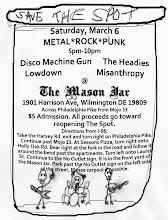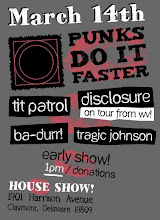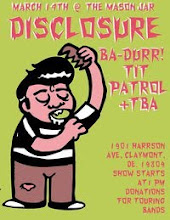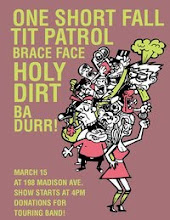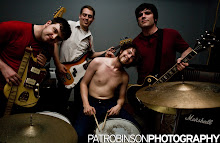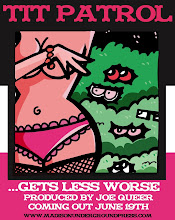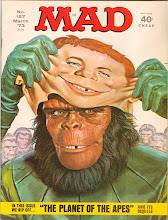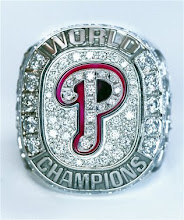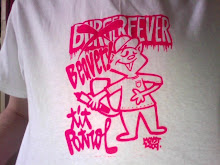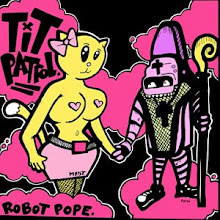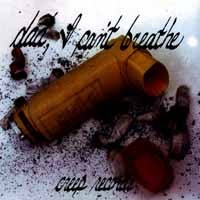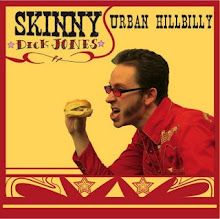Thirty-five years ago, on June 12, 1970, Pittsburgh Pirate and future Texas Rangers pitcher Dock Ellis found himself in the Los Angeles home of a childhood friend named Al Rambo. Two days earlier, he'd flown with the Pirates to San Diego for a four-game series with the Padres. He immediately rented a car and drove to L.A. to see Rambo and his girlfriend Mitzi. The next 12 hours were a fog of conversation, screwdrivers, marijuana, and, for Ellis, amphetamines. He went to sleep in the early morning, woke up sometime after noon and immediately took a dose of Purple Haze acid. Ellis would frequently drop acid on off days and weekends; he had a room in his basement christened "The Dungeon," in which he'd lock himself and listen to Jimi Hendrix or Iron Butterfly "for days."
A bit later, how long exactly he can't recall, he came across Mitzi flipping through a newspaper. She scanned for a moment, then noticed something.
"Dock," she said. "You're supposed to pitch today."
Ellis focused his mind. No. Friday. He wasn't pitching until Friday. He was sure.
"Baby," she replied. "It is Friday. You slept through Thursday."
Ellis remained calm. The game would start late. Ample time for the acid to wear off. Then it struck him: doubleheader. The Pirates had a doubleheader. And he was pitching the first game. He had four hours to get to San Diego, warm up and pitch. If something didn't happen in the interim, Dock Philip Ellis, age 25, was about to enter a 50,000-seat stadium and throw a very small ball, very hard, for a very long time, without the benefit of being able to, you know, feel the thing.
Which, it turns out, was one of the least crazy things that happened to him on that particular day.
The high-desert town of Victorville, California, is the last stop on the long road out of Los Angeles, and the place does little to embarrass the word "shithole." It's best known as the home of five prisons, some reportedly very good crystal meth and a kick-ass Long John Silver's; its primary attraction to residents is that, unlike the small towns across the mountains in California's central valley, its air does not always smell like burning tires and cowshit. It is, in sum, about as far from major league baseball glory as one could get without a spaceship or a body bag. And it's the place that, for the past two years, Dock Ellis has called home.
On a recent Friday afternoon, Ellis, now 60, stands outside his house, waiting for movers to arrive. Ellis lives in an upscale subdivision of identical homes laid out on identical streets; this weekend he's moving to a larger house several blocks away.
Ellis is not a small man--when he drove up in his wife's tiny sports coupe, his knees looked like earrings--and here, now, watching him pace around his front yard, a few flecks of gray are the only suggestion that Ellis' "heavyball" couldn't still kill a small animal. (Well, plus the fact that he can't lift his arm over his head, having torn his rotator cuff lifting weights in 1993. There's that.) In conversation, he's intelligent, funny and what former Rangers owner Brad Corbett calls "dangerously honest."
Throughout his 12-year career as a player, he was often labeled a different kind of dangerous. Brash, gifted and impetuous, he would do almost anything to make a point he believed in. When baseball brass complained about his haircut, he wore hair curlers on the field. When a heckler called him nigger during a minor league game in Alabama, he entered the stands, sat among the hecklers and said, "What happened to all those niggers up here? All those niggers calling me nigger?" (In Ellis' version of the story, he also has a gun in his pocket.) When the Cincinnati Reds taunted the Pirates after beating them in the 1972 National League Championship Series, Ellis decided to motivate his team by hitting every single batter in the Reds' lineup. He hit the first three and walked two before he was pulled. He had, in short, that certain combination of raw talent and insanity that very rarely creates Hall of Famers but almost always creates legends.
"Dock Ellis was without question the most intimidating pitcher of his era," says former MVP and batting champ Dave Parker, who came into the majors on Ellis' 1973 Pittsburgh Pirates. "Bob Gibson is up there, too, obviously, but with Dock it wasn't just his stuff. It was his flamboyance, his perceived militancy and his fearlessness. When he came and said he was gonna hit all those Reds, I thought, 'You ain't gonna do nothing, man.' Then he did it. I gained a lot of respect for him right there. Dock was and is one of my best friends--I call him my baseball father--but after I left the Pirates, he said he was gonna hit me in the face. And every time I faced him, I was scared."
Ellis grew up 97 miles southwest of Victorville, in a section of Los Angeles known colloquially as "the Neighborhood"--a middle-class black suburb nestled between Gardena, Long Beach and Watts. His childhood was, by all accounts, remarkable mostly in its normalcy: His parents loved him, he got into trouble here and there, he excelled at sports and practical jokes.
"I met Dock on the front porch of a lady friend's house in 1962," says Al Rambo, Ellis' cohort the night before the LSD incident. "He drove up in a 1959 four-door Chevy Impala with 'The Nut' written on the rear windshield. He walked up and told me he was a singer. I asked him to sing, and he said he only did it for money.
"He's still the person you call if you want to find somebody from the old Neighborhood. Later, he liked to create this image that he was a gangbanger or something, but Dock never got into much trouble. Except with the ladies."
Ellis and Rambo soon began running around with a couple of other neighborhood athletes, calling themselves "The Sons." At 6-foot-4, Ellis originally gained notice as a basketball player; he once had 21 assists in a Gardena High game. He refused to play for the baseball team--one of the white players had called him "spearchucker"--until, during his senior year, he was caught drinking wine in the bathroom. Play baseball, he was told, or we'll suspend you.
He played in four games and was named all-league.
Ellis' true initiation to baseball took place under the tutelage of legendary pitcher Chet Brewer, a 20-year veteran of the old Negro and Mexican leagues, a man who had played alongside Satchel Paige on the Kansas City Monarchs. Brewer was a scout for the Pirates and the manager of L.A.'s Pittsburgh Pirate Rookies squad. (In the days before the draft, such scouts were heavily relied upon to recruit players for rookie teams; at one point, the talent on Brewer's team was so impressive that Ellis wasn't even their No. 1 pitcher--and future Hall of Famer Eddie Murray was the bat boy.) Almost immediately, several teams tried to sign Ellis to a proper minor league contract, but he and his friends had heard of rookie players signing with the Pirates for $60,000, so he held out. Then, a year out of high school, Ellis got arrested for stealing a car. (Long story.) After he got off with probation and a fine, Chet Brewer suggested that, at this point, he might consider signing anything with a dotted line. And so, in 1964, Ellis signed a one-year minor-league contract with the Pirates for $500 a month, plus a $2,500 signing bonus. The Nut was going to The Show.
Here's what Ellis remembers about the trip from Los Angeles to San Diego: not a goddamn thing. Apparently he got to the airport, boarded one of the San Diego shuttles that left every half-hour, flew for 22 minutes and landed. The first thing he recalls is sitting in a taxi, telling the driver to "get to the fucking stadium. I got to play." Next thing, he's sitting in the locker room. 5 p.m. By that point, Ellis had enough experience with LSD to know that it wouldn't be wearing off anytime soon; as a, uh, "precautionary measure," he took somewhere between four and eight amphetamines and drank some water. He walked to the railing at Jack Murphy Stadium where, each time he played in San Diego, a female acquaintance would bring him a handful of Benzedrine. White Crosses. He took a handful of those and went to the bullpen to warm up.
After that, it's impressions, mostly. The bullpen. Throwing. No idea how that felt, but he can remember being there. Next: the dugout. Sitting. Looking up and seeing drizzle. Not really how it looked or felt or any of that; just hoping to shit the game would be canceled. Just before 6:05 p.m., the umpire emerged, wiped off home plate and did a quick and basically ceremonial examination of the drizzle situation and signaled to the Pirates' bench. The national anthem began. "Damn. Looks like I'm gonna have to pitch." At this point, the thing in his hand felt, more or less, like a very heavy volleyball.
Much like rock music or God, baseball is forever being declared dead. This scandal or that problem has tarnished the game forever; this strike or that contract has permanently alienated the fans; this player or that legend declares the sport has seen its best days. Ellis hates that shit. "When I played the game." "When I played the game." The ball is the same, isn't it? How about the bat? Still four bases? OK then.
Looking at tape of Ellis in his prime, what's most immediately striking is how much bigger--as in taller, naturally wider, fatter--the players appear to be; by contrast, a baseball game in today's steroid era looks like a carnival of bloated red midgets. The second-most striking thing is the economy of Ellis' motion. There's no elaborate wind-up, no huge leg kick or head move. He hides the ball until the last possible moment, then nonchalantly throws a brutal breaking ball. After a few pitches, it's easy to see how, even without the best pure stuff in the league, he became one of its premier pitchers.
In 1968, after being called up from the minors in June, Ellis went 6-5 with a 2.51 ERA; as quickly as the 1971 season, he was 19-9 with a 3.06 ERA and starting for the National League in the All-Star game. He had the arm speed and leg strength, but he also relied heavily on strategy--which consisted almost entirely of intimidation.
"It's such an important aspect of the game," he says. "Like hitting batsmen. All hitters know they're gonna get hit. They just don't know when. The kicker for the truly good hitters is, you cannot hit me as many times as I'm gonna hit you. They take that hit to get six hits. But you gotta pop their ass so you can get an 0 for 4 on them one day. Don't get cocky now, motherfucker. The challenge is on. So let's get it on. Other guys might explain it differently, have different reasons, but that was mine.
"Right about the time I left, it changed. You can't throw at anyone without getting thrown out of the game. The announcers today say it ruins the game. They never talk about the fights that Cincinnati and St. Louis got into 30 years ago. Barry Bonds? I'd hit him at least once a game. 'Cause he's got all that shit on. Yeah, let's see that shit stop the ball from hurting him if I hit him on the motherfucking elbow or something. I'd hit him just to see, does it work?"
It was also that 1971 All-Star game that first gained Ellis his reputation as a militant--an image later etched in stone by the 1976 biography Dock Ellis in the Country of Baseball, which declared him "baseball's Muhammad Ali."
Before the game, Ellis let it be known that NL manager Sparky Anderson would never start him, because the announced AL starter, Vida Blue, was also black. This launched the inevitable national sportswriters' debate about how racism didn't exist in 1971, and how dare he and why would he and so on and whatnot. The flap had its intended effect: Anderson, grumblingly, started Ellis, and the pitcher soon became one of the most reviled players in the league, branded a troublemaker and miscreant. Ellis was untroubled by the affair; as with most things in which he believed, he openly declared he "didn't give a fuck what anybody thought." With possibly one exception: A few days after the All-Star game, Ellis received a letter in the mail.
"I read your comments in our paper the last few days," it read, "and wanted you to know how much I appreciate your honesty. The news media, while knowing full well you are right and honest, will use every means to get back at you. Honors that should be yours will bypass you and the pressures will be great--try not to be left alone. There will be times when you ask yourself if it's worth it all. I can only say, Dock, it is.
Sincerely,
Jackie Robinson"
What's weird is that sometimes it felt like a balloon. Sometimes it felt like a golf ball. But he could always get it to the plate. Getting it over the plate was another matter entirely. Sometimes he couldn't see the hitter. Sometimes he couldn't see the catcher. But if he could see the hitter, he'd guess where the catcher was. And he had a great catcher back there. Jerry May. You could make mistakes with him, and he would compensate. He'd know if he called for a curveball, he could look at the follow-through of your arm and see if you were gonna hang it. So he'd get ready to slide and block. Also, he had this reflective tape on his fingers that was by far the easiest thing to see.
Ellis had no idea what the score was, and he knew he'd been wild--he ended with eight walks, one hit batsman and the bases loaded at least twice--but here it was, bottom of the seventh, and he was still in the game.
The hardest part was between innings. He was sure his teammates knew something was up. They had all been acting strange since the game began. Solution: Do not look at teammates. Do not look at scoreboard. Must not make eye contact. His spikes--that's what he concentrated on. Pick up tongue depressor, scrape the mud, repeat. Must. Clean. Spikes.
Sometime in the fifth or sixth, he sensed someone next to him. Looking. He turned. It was rookie infielder Dave Cash.
"Dock," Cash said. "You've got a no-hitter going."
Cash, apparently unaware of the (insanely well-known) superstition that a pitcher never talks about a no-hitter until it's complete for fear of jinxing it, was immediately piled upon by several outraged teammates. Ellis, meanwhile, looked at the scoreboard.
Huh.
Yeah.
After the eighth, during which he'd watched outfielder Matty Alou snag an almost certain base hit, Ellis walked off the field and looked Cash straight in the eye.
"Still got my no-no!" Ellis declared.
Ellis' last good year as a pitcher came in 1977, his first of two with the Rangers. In the interim, his reputation as a wildman had grown exponentially. There were the hair curlers (which inspired a spread in Ebony about his hairstyles), the biography, the beaning of the Cincinnati Reds. There was a July 1976 incident, after being traded to the Yankees before that season, in which Ellis decided to retaliate against Reggie Jackson for showboating after a brutal home run in the 1971 All-Star game--and hit him in the face with a fastball. Jackson was carried off the field on a stretcher; four years later, he'd tell reporters that his face was still numb. Ellis had been maced by security guards, threatened by his own managers and declared the most unpopular Pittsburgh Pirate ever.
Rangers owner Brad Corbett didn't care about any of it.
"I absolutely loved him," says Corbett, who acquired Ellis from the A's in June 1977. "The biggest misperception about Dock is that he's this untamed, self-destructive wildman. And part of that is true; he was crazy, but in a good way. He was fun. He had a way of keeping people loose. He was a practical joker. He had character. Everybody loves to talk about that LSD no-hitter, but come on. Stuff like that was happening all the time. Everybody was doing something. One relief pitcher we traded for, I went to meet him in New York at Studio 54. And I walk in and look over and say to myself, 'Hmm. Is that sugar?'
"And of course, number one, he was a damn good pitcher and a terrific competitor. In fact, at one point, we traded him to Cleveland, and I felt so bad about losing him that I called the trade off. And by that point, he was at the end of his career, and his arm was fading. It clearly wasn't the right business decision, but I just couldn't let Dock go."
The Rangers' 1977 starting rotation of Ellis (who went 10-6 with a 2.90 ERA after he joined the team), Ferguson Jenkins, Doyle Alexander and Bert Blyleven remains the strongest starting four the club has ever had; that team's 94 wins, which placed it second behind Kansas City's 102, were the strongest whiff of the playoffs the Rangers would get until the AL West was pared down to four teams, making it easier for the Rangers to climb to the top of a very short pile.
But Corbett was right: Ellis' arm was fading, his body haunted by a problem that, like racism, he had first experienced upon arriving in the majors. One day early in his career, Ellis was lying on the dugout bench, "half-assed asleep and hungover," and found out he was supposed to pitch. An older player leaned over and handed Ellis a plastic cup.
"I said, 'What the hell is that?'" Ellis recalls. "He said, 'Juice.' I drank it, and next thing I know, I was out there on the mound like [Juan] Marechal. And I liked it."
Ellis had just had his first experience with amphetamines; by the time he arrived on the Pirates proper, Ellis was popping green Dexamyl pills before every game. Eventually, he'd need between 70 and 85 milligrams to get up for a start; that would be somewhere between five and 12 pills, depending on what type he took. And over the next 12 years, he wouldn't pitch a single major league game without them. Not one.
"Doctors aren't gonna come out and say it, but it enhances your game," Ellis says. "The thing is, you get addicted to it. You take half a pill and do great. Then you take half three weeks later and don't do good, so you say maybe I better take the other half. 'Cause I'm not feeling the same way. It got to the point where I had to take it just to be on the bench, when I'm not pitching. Just to stay awake.
"Why? Fear. Fear of success and fear of failure."
By his final year, 1979, there wasn't much cause for Ellis to fear success. He bounced from the Rangers to the Mets, compiled a 4-12 record with a 5.98 ERA and made one last request to Pittsburgh General Manager "Pete" Peterson: Trade me or let me die a Pirate. He was granted his request and made three relief appearances with the Bucs. When Corbett sold the Rangers before the 1980 season, Ellis made it official and retired. By that point, he didn't care about baseball at all. All he cared about was getting high. Speed, cocaine, even scotch. Which he hated.
"Then my son was born," Ellis says. "I was wearing a lot of jewelry at the time, and when I'd hold him, I'd grab his arms and whatnot. Then I read these stories about parents who shake their kids and kill them. I asked myself, I wonder how hard I'm grabbing him. Then I realized the truly fucked-up thing: that I had to ask myself at all. That's when I knew, something's wrong with me. I went to treatment the next day.
"I was in there sniffing pingpong balls, trying to get high. A doctor came to me and asked me to list all the substances I'd done in my life. He looked at the paper and said, 'I have to classify you as suicidal.' I said fuck you. Suicidal. He handed me back the paper and said, 'Anyone who's doing that is trying to kill themselves.' I looked at him and thought about that. After a minute, I told him nobody will ever have to worry about me getting high ever again."
This is the point of the story at which things are supposed to get ugly. There should be backsliding, stories of long sweaty nights with "friends" whose last names you don't know, possibly a homeless period or two.
None of it happened to Ellis. After he quit baseball and cleaned up, he's had basically no contact with the game--he played a couple of seasons in a senior league and was briefly hired by George Steinbrenner ("the only person in baseball who wasn't afraid I'd be the old Dock Ellis") as a minor league drug counselor--but mostly he's been eating Snickers and drinking Dr Pepper, working as a drug counselor. He seems to genuinely miss the game, especially the fans, but he doesn't seem devastated by it.
"You know, I'm just clean and sober and going on about my business," he says. "But there's gotta be a place for me in baseball. I should be with baseball. But that's partly my fault. I alienated myself. I left baseball with the wrong impression about the people who ran the game. 'Cause I had that paranoia that everybody was out to get me."
"It's almost like Dock wanted people to think he wasn't as smart as he is," Dave Parker says. "But the people he's close to, we know."
One day last month, Ellis walked into the Victor Valley penitentiary, where, for the past two years, he's worked as a drug counselor. He said he had a surprise for his class. HBO Sports was doing a piece on him, and they'd dug up an old black-and-white videotape of that June 1970 game against the Pirates. To that point, Ellis swore that no tape of the game existed, and he'd never seen himself pitch high on LSD. And this would be the first time he was watching it. As the game enters the ninth, it gets to two outs, three balls and two strikes, and then the tape cuts straight to a postgame interview.
"I remember getting that last out," Ellis says. "And turning around and saying, 'A fucking no-hitter!' It didn't really hit me until the next morning, when I was less high, and I got a live phone call from CBS or ABC or something wanting to interview me. They kept telling me to turn the TV down. Too much feedback."
The class looked at Ellis' postgame interview and dissected his mannerisms, laughing at how obvious it seemed that he was high. In a way, Ellis ending up on the straight and narrow in this small town, spending his days with criminals who are in the same boat he once was, not caring so much about baseball or his legacy--he couldn't have found a better confirmation of the faith that the Brad Corbetts and George Steinbrenners, the Al Rambos and the Dave Parkers placed in him when he was at his craziest: the belief that somewhere beneath the hair curlers and the fancy clothes and the fights and the clenched jaws was a man of true character.
The sport of baseball has, since his retirement, more or less shunned him because of who he was. The irony, of course, is that Ellis' one-time problems, which prevented him from being a truly great player, have since revealed him to be something more like a great person.
And baseball, like the rest of us, could use a few more of those.








































